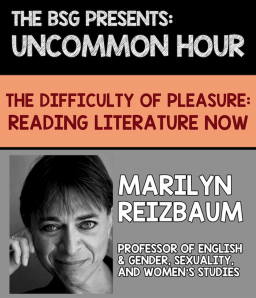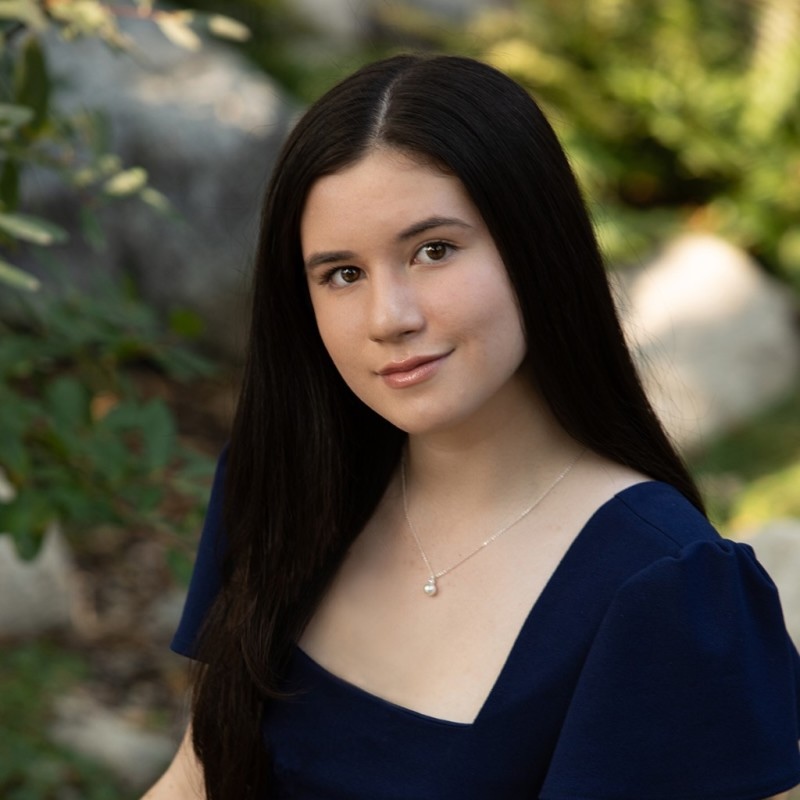Prof. Reizbaum: Finding Pleasure in Difficulty
By Rebecca Goldfine
In a recent talk geared to students, English professor Marilyn Reizbaum reassured her audience that despite living in a time in which we are barraged with quickly digestible media in the form of tweets, blogs and Instagrams, books are not “imperiled.”
Reizbaum, Bowdoin’s Harrison King McCann Professor of English and co-director of the Gender, Sexuality, and Women’s Studies Program, was invited to give an “Uncommon Hour” talk by the Bowdoin Student Government. BSG launched Uncommon Hour in 2012 as a way to hear from favorite Bowdoin faculty, who are encouraged to deliver Ted-talk style lectures during the lunch hour when students are free to attend.
Reizbaum’s was the third Uncommon Hour of the academic year. Associate Professor of Africana Studies and History Brian Purnell spoke in December about the link between minstrel shows and some halloween costumes. Karla Padron, a CFD postdoctoral fellow in gender, sexuality and women’s studies, spoke in November about challenging anti-black and anti-Mexican racism in the U.S.
Reizbaum works on modernist literature, which is generally dated from around 1900 through the 1940s but has left a long legacy, impacting arts and culture even today. Modernist literature is known for its “radical, formal experimentation,” and has a reputation for being difficult to understand. Reizbaum’s work is especially focused on James Joyce, whom she jokingly calls, “Mr Blissfully Difficult, himself.”
Reizbaum insisted in her address that challenging reading affords a pleasure of its own. Crediting philosopher Judith Butler with her next observation, Reizbaum said, “difficulty is ethical, that is, reflecting a necessarily challenging process that is the acquisition of knowledge, by which we are edified and about which we should not be complacent.”
Writers of the modernist period who produced confounding avant-garde works have been said to have been reacting to the traumas of World War I and II. “In other words,” Reizbaum explained, “pleasure is an unworthy aim in the face and aftermath of such calamity. And the aesthetics of works that are created in this period reflected this principle and this suspicion.” In her talk, she briefly analyzed excerpts from James Joyce’s Ulysses, Samuel Beckett’s Waiting for Godot and the poem One Art by Elizabeth Bishop.
To find the reading of these works unsettling can be a valuable experience, Reizbaum continued. Modernist literature shakes readers’ “historical, cultural and psychological” assumptions. To uncover the works’ hidden meanings, readers must maintain a continuous, focused inquiry into the words, sentences and structure of the work. Being off kilter helps one stay in thrall of the thing that is perplexing.
“What is it that we value?” Reizbaum asked. “Are they the things that are easily accessed? Or the things that are not?” She added, “We are caught. We think we want it to be easier. But, finally, we are most gratified, and most informed by things that challenge us, discomfit us and put us elsewhere.”
At the end of her talk, Reizbaum acknowledged that her talk was inspired by her students, “whose delight” in the literary encounter she said she so much appreciates. “Watching you engage the works we study together is a pleasure,” she said, adding, “I know that when we’re doing it together and it begins to take shape and take hold, it hasn’t been easy but it’s a kind of remarkable transaction.”



